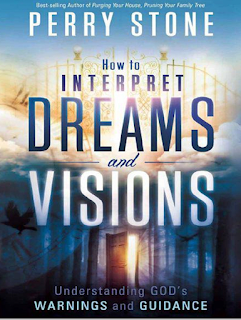How to Interpret Dreams and Vision by Perry Stone


In this engaging book, Robert Bly shares tips on effective time management and efficient job delivery.
There are some habits you can take on that help you to get more done in less time. This is freedom. Some of them are:
If productivity is a priority for you, then there are certain things you will have to give up. Chief of these is laziness. The primary reason for unproductivity in most workers is that they do not really want to be productive. If productivity is a priority for you, here are a few necessary steps to take to achieve it:
This chapter also contains a self-assessment test to help you see if you are a productive worker.
Job burnout is a major hindrance to productivity at work. Some ways to overcome and avoid job burnout are to ask for more work, take on different work, restructure your work, change employers, restructure your job, and to change fields.
If you want to become more productive and you are ready to work at it, you will succeed.
This chapter outlines ways you can achieve more without too much effort. Creating blocks of time for concentrating on the hardest tasks for the day and keeping those times sacred will go a long way to boost your productivity that day.
The biggest distraction and time-waster is the TV. When you are tired and need to relax, instead of "vegging" in front of the TV, play good music, take a beverage or a snack, set out all the materials you have piled up for reading, and scan through them pleasurably. This way, you would have achieved two things - relaxation and time conservation.
Getting out of bed an hour earlier is a great efficiency booster too. Before the business of the day begins, you are able to get some personal time to yourself.
The term "Time-Management See-Saw" comes from the fact that most times, when we are busy already, more work keeps coming in and when we have a free or slow day, there is usually almost no work at all. This chapter focuses on managing your time well during the busy days and the downtimes.
Making good use of your downtimes is key. If you don't have much work to do for a certain period, you can make use of time-fillers to spend the hours productively. Some time-fillers are doing pro-bono work, teaching, learning a new piece of software, cleaning out your files, being social with your colleagues, and reading.
When you are on the busy end, learning how to handle pressure and juggle projects will go a long way. Say "no" when you are truly too busy. It's better than risking missing the deadline or not doing a good job. If you do not want to say no, you can consider asking for more time. Getting up an hour earlier or working an hour later will also help to get the workload off faster.
This chapter suggests technological equipment that you should have to maximize your work-time and boost productivity. Technology helps you get more done in less time.
Get a good personal computer and software as well as hardware like printers, keyboard, and a muse. Install the necessary software for word processing, contact management, and presentations. Install an anti-virus too. Also, learn to use cell phones effectively and make use of wireless technology.
Everyone has only 24 hours each day, but with delegation and outsourcing, you can get 75 hours of work done in just 24 hours.
Delegation is not only about giving work to others. It involves ensuring that they do it efficiently well. When you delegate, consider the people you are giving work to. Do not be too critical. Allow them to fail and try again. Be available to offer guidance on the work and be open to their ideas.
Outsourcing is delegating work to other vendors apart from staff employees.
Having an organized work setting will require effort, but in the long run, it saves a lot of time and stress. Some techniques to help with being organized are: carrying a pocket to-do list and pen at all times, penning down ideas as soon as they occur, putting things in their appropriate place, keeping a calendar of appointments and deadlines, and creating a filing system for every aspect of your life.
Boosting your energy helps you think and concentrate on work better and longer. Some ideas for increasing energy levels as stated in the book are getting check-ups, eating light and right, and reducing caffeine and sugar. Also, make sure that you get enough sleep. Most people need eight hours of sleep.
Sometimes, there are a lot of materials to read. And the truth is sometimes, you do not need all of the information in those materials. This chapter gives tips on managing information overload. Some of them are: reducing information input, improving your listening skills and scanning, instead of reading.
A very powerful strategy for managing time is to avoid doing things that waste your time or are unnecessary. Off-loading means removing less important tasks from your to-do lists so you can focus on priority tasks.
Offloading is important because you definitely can't do it all and time is limited. Review your to-do lists, eliminate useless, time-consuming activities, cut back on business travels, and act as if you have only one life to live.
Photo credit: Goodreads
Get the book here
Comments
Post a Comment
We are sure you enjoyed this summary. Please, leave a comment!!